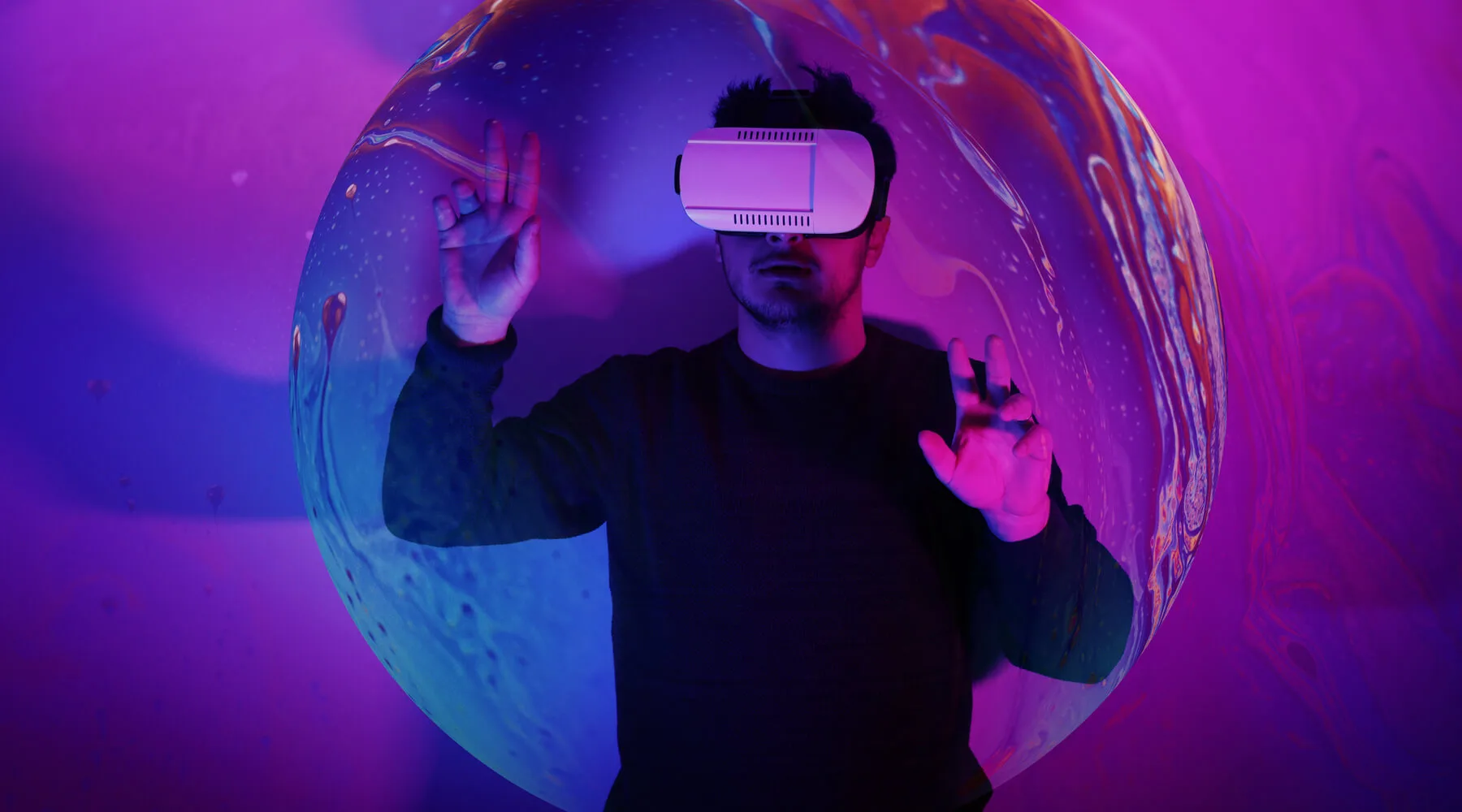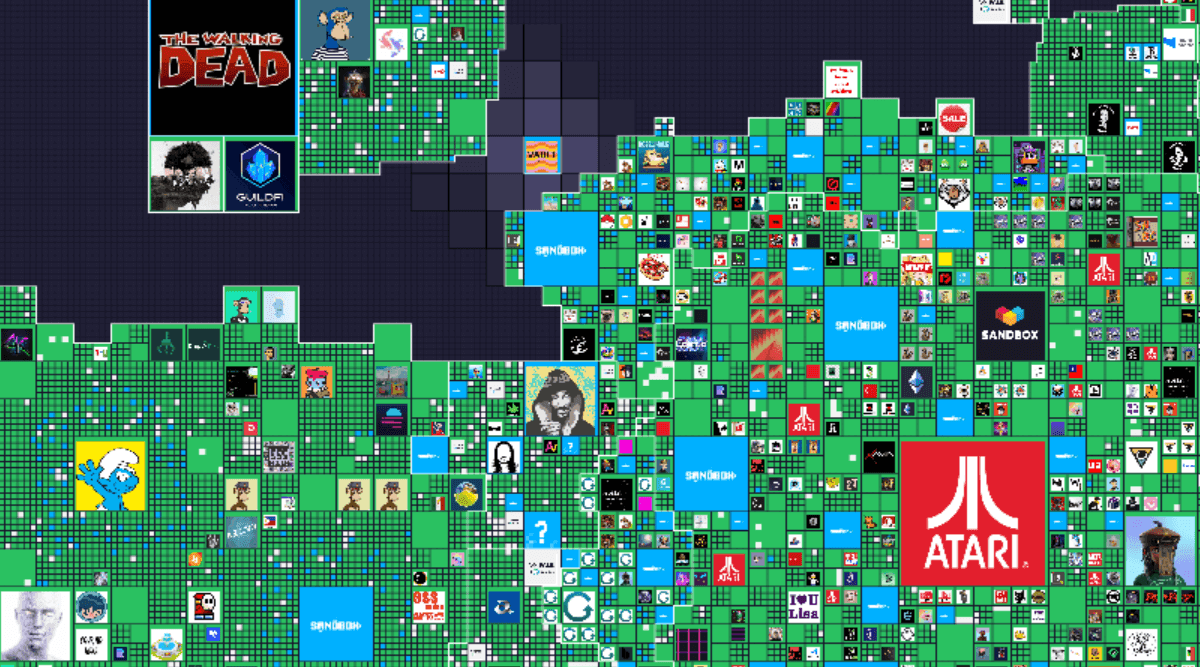Decentra-what? Why metaverse real estate could be the next big thing

What is the point of owning digital land, and is it time to start investing?
Picture this: You've just bought your first home. You've secured a mortgage and you're ready to move in. Except there's one small detail: Your home doesn't actually exist. Not in the real world at least. You've just bought a virtual home in the metaverse.
If that sounds like Greek to you, you're not alone. Two-thirds of Australians don't understand what non-fungible tokens (NFTs) are, and only 5% own any. In their most basic sense, NFTs are digital items that can be owned by a person or company, with the ownership itself recorded in the blockchain. Other people can see, or even copy, the asset, but only 1 person is ever recorded as the exclusive owner. It's similar to owning a painting, and like a painting, they can also be a store of value.
Amidst the rise of artwork and collectibles (think Bored Ape Yacht Club and World of Women), land ownership in the metaverse is another form of NFT, and it's booming. In 2021, real estate sales across the 4 major metaverse platforms – The Sandbox, Decentraland, CryptoVoxels and Somnium Space – reached US$501 million, according to MetaMetric Solutions. At the current pace, sales are expected to reach US$1 billion in 2022.
How much does it cost to own a home in the metaverse?
Just as with property in the real world, it depends.
In Decentraland, one of the most popular metaverse worlds, a single parcel of land costs $19,500 on average. The Sandbox is slightly cheaper at $17,100 per parcel. While that might sound like a lot, it's still not on the same playing field as real estate in Sydney or Melbourne. When you take into account land size, Decentraland costs around $76 per square metre, compared to $6,100 in Sydney and $4,000 in Melbourne. The Sandbox is even cheaper at just $1 per square metre.
There have been some virtual land sales on the steeper side though. Late last year, a plot of land in Decentraland's Fashion Street – one of its more prestigious areas, where brands host fashion events and sell clothing for avatars – sold for a staggering US$2.4 million. Around the same time, another plot sold for US$2.3 million in the popular online game Axie Infinity. One user even spent US$450,000 to own land next to Snoop Dogg in the Snoopverse (yes, that's what it's called).
This might sound like a ridiculous price to pay to be some rapper's virtual neighbour. What's the point of owning virtual land if you can't live in it?
Why are people buying virtual property?
As with any other investment, people buy with the hope that its value will grow. In Sydney, demand for housing is high because it's where everyone wants to be: there are jobs, entertainment, restaurants and a large community of people.
The metaverse is still in its infancy, but the concept is similar. Virtual property is in limited supply. In theory, as it grows, communities will form and more and more people will want to join, which will drive up prices. With growing concerns over property affordability and low savings rates, some are even looking to metaverse real estate to build generational wealth.
As for what you might do with your digital home, the opportunities are plenty and growing. Brands can build digital storefronts to sell their products. Businesses can use the metaverse as a digital office space to bring together remote workers. Artists can put their work on display in NFT galleries. Advertisers can buy up digital billboards. Developers can build games for users to interact with.

There are now "metaverse mortgages"
Similar to the real world, metaverse users can even take out a home loan on their virtual land. North America-based company TerraZero provides virtual mortgages that resemble traditional home loans. Buyers agree to an interest-based loan that they pay off in instalments until they own 100% of their land. So far, it's mostly brands who are taking on virtual housing debt, but it's certainly the beginning of a new economy.
Should I just sell my house and buy up the metaverse?
Virtual homes are not going to replace our real homes anytime soon, so no. But metaverse real estate does have the potential to change how we interact with brands and businesses.
Experts are predicting our lives will become increasingly intertwined with the metaverse, and virtual spaces will be as essential to our lives as social media is today.
There's a good chance virtual real estate will be a key pillar of Web3, but it's still too early to tell what the major worlds will be and where prices will go. So as with shares or cryptocurrency, only invest what you can afford to lose, and maybe don't sell your house just yet.
Finder's Insights Column examines issues affecting the Australian consumer. It appears regularly on finder.com.au.
Image: Getty/Shutterstock
Ask a question
